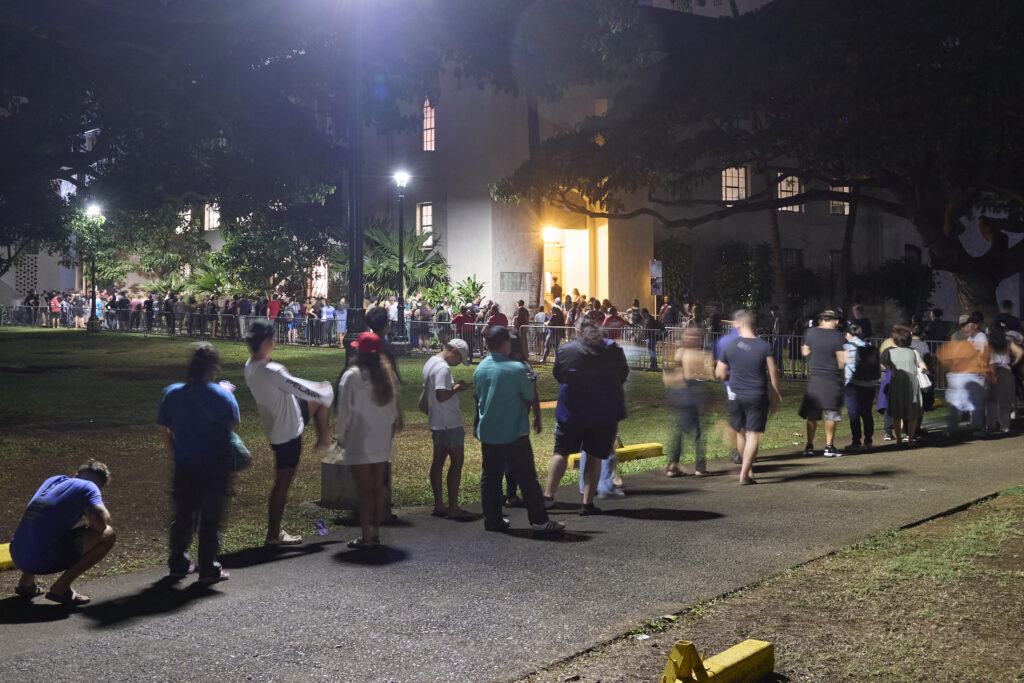It was a crisp autumn morning in November 1996. As my father drove me to school, dew fell on the Tennessee lawn with colorful trees lining the road.
But this day was different. You won’t be expelled just because regular school is closed. My father took me to find out why people were still “going to school.”
When I went inside, I saw a row of machines with curtains. “This is so cool,” I thought.
My father took me to a booth and said, “Do you want to vote?” I smiled enthusiastically and nodded yes.
My dad picked me up and showed me which buttons to press. When he dropped me off he said, “Don’t tell anyone you did that. You’re not supposed to vote until you’re 18, right?” Of course he was kidding, but that’s my first memory of voting.


As I grew up, my father and mother instilled in me knowledge of history and culture. Growing up in the South, my summers were rarely filled with trips to the beaches of Florida or the Carolinas. Rather, I spent many summers touring historically black colleges and universities and visiting historic sites such as the Lorraine Motel in Memphis, the infamous site of Martin Luther King Jr.’s assassination.
We visited the 16th Street Baptist Church, the site of a bombing that killed four black girls during a choir rehearsal at the height of the civil rights movement. I spent many summers with my grandmother, a former sharecropper, and she spent a lot of time telling me about her life, dealing with things like poll taxes and threats from the Ku Klux Klan.
These experiences helped shape my thinking about the importance of voting.
For people like me, voting is not only politically meaningful, but also a deeply cultural experience. I understand that being able to vote is a great honor for me and I am truly proud. Because I am truly living the dream of my ancestors.


In 2020, the pandemic forced many people to rethink how they voted, with many choosing to vote by mail. As a first-time voter in the 2020 election, I wore a mask and went to vote in person at my local polling place during the pandemic. Many people will ask: Wouldn’t it be easier to vote by mail? ”
What these people don’t realize is that it’s not easy for all voters. Some would argue that voting for minority communities was not as “easy” as it seemed. That spirit, resilience, and patriotism to vote and defy the odds have been passed down to today’s generations.
This is especially my story. I will vote in person to honor my ancestors and the U.S. Constitution. What may motivate others to traditionally vote in person is their story. Importantly, voting by mail or early voting cannot and should not replace in-person voting on Election Day.
It would be foolish to ask people to adapt to voting by mail while reducing in-person voting centers on Election Day.
Democracy is not just a concept; democracy requires action. It is fundamental that our nation invests in democratic infrastructure.
I voted in person at Honolulu Hale at 11:30 a.m. Tuesday. It took two hours to vote. Luckily, Honolulu Hale is less than a 10-minute drive away. As the days went by, I received many calls from frustrated voters who didn’t know where to go to vote. My heart sank when I told these working class people that they had to drive at least 40 minutes from where they lived and then be prepared to wait in line for three hours.
The state’s most populous island had only two in-person locations. That fact alone is terrible. Neighboring islands, which are much more rural than Oahu, had even fewer options.
Democracy is not just a concept; democracy requires action. It is fundamental that our nation invests in democratic infrastructure. Many are trying to place the blame squarely on state elections director Scott Nago. I think that’s extremely lazy and short-sighted. Nago can only work with what is given to him.
In fact, it’s a failure of the governor and legislators for not allocating more money to elections. To be clear, the issue of long lines was definitely raised and ignored by lawmakers and advocates at least a year ago.
Now that the 2024 election is over, it’s time to take the lessons learned and move forward. We have learned that voting by mail cannot replace the growing enthusiasm around in-person voting in our states. Now more than ever, it is time for all branches of state government to come together to ensure that our democratic institutions are adequately funded.
This will allow citizens to interact with democracy in a variety of ways and will encourage greater participation in democracy.
Sign up for our free morning newsletter and stay informed every day.
sign up
sorry. That’s an invalid email.
thank you! We will send you a confirmation email shortly.




